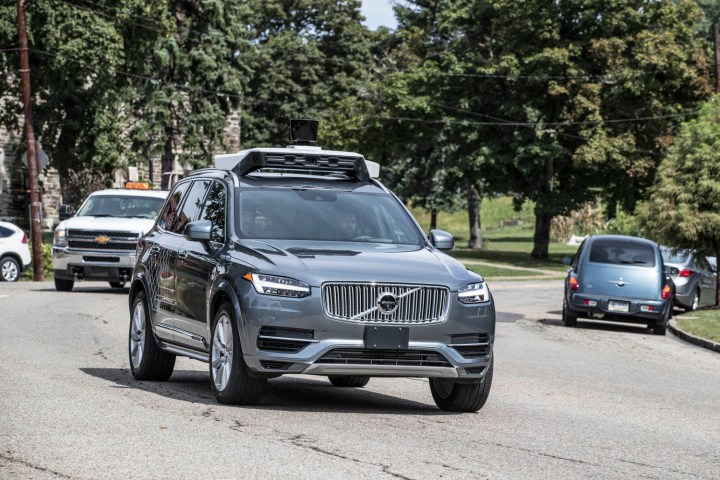
The family of Elaine Herzberg, the 49-year-old woman who was killed by one of Uber’s self-driving prototypes in 2018, has filed a $10 million lawsuit against the city of Tempe, Arizona, where the accident took place. They claim the paved median in the middle of North Mill Avenue created a confusing, dangerous situation that encouraged Herzberg to jaywalk and contributed to her death.
Uber’s Volvo XC90-based autonomous prototype struck and killed Herzberg as she pushed her bicycle across the northbound lanes of North Mill Avenue on March 18, 2018. She was jaywalking while wearing dark clothing in the dark, but investigators concluded the accident was “entirely avoidable.” In-car video footage confirmed the safety driver was watching The Voice on Hulu instead of paying attention to the road ahead.
Christine Wood (Herzberg’s daughter) and Rolf Ziemann (Herzberg’s husband) are each suing Tempe for $5 million. They claim the median she crossed “has a brick pathway cutting through the desert landscaping that is clearly designed to accommodate people to cross at the site of the accident,” according to news outlet AZ Central. Had the pathway not been there, they argue, she likely would have crossed elsewhere. Since it was there, there should have been a crosswalk allowing pedestrians to safely walk across Mill Avenue.
The website added Tempe officials have since replaced the bricks with a landscape of rocks and plants, and they posted signs warning pedestrians to cross Mill Avenue only at designated crosswalks. The city hasn’t commented on the lawsuit.
Lawyers called Herzberg’s family’s case weak at best.
“Generally, the city is not obligated to warn people of open and obvious dangers. The obligation is in the other direction. People are obligated not to cross the street outside of crosswalks,” Logan Elia, an attorney at the Rose Law Group in Tempe, told AZ Central. “There’s nothing in the report as I read it that says the accident would have been avoided had there been a painted crosswalk,” he concluded.
Uber settled with Herzberg’s family (including Wood and Ziemann) less than two weeks after the accident, but the terms of the settlement weren’t made public. Arizona governor Doug Ducey suspended Uber’s authorization to test self-driving prototypes on the state’s roads after the accident, a setback which enabled rival Waymo to extend its lead.




